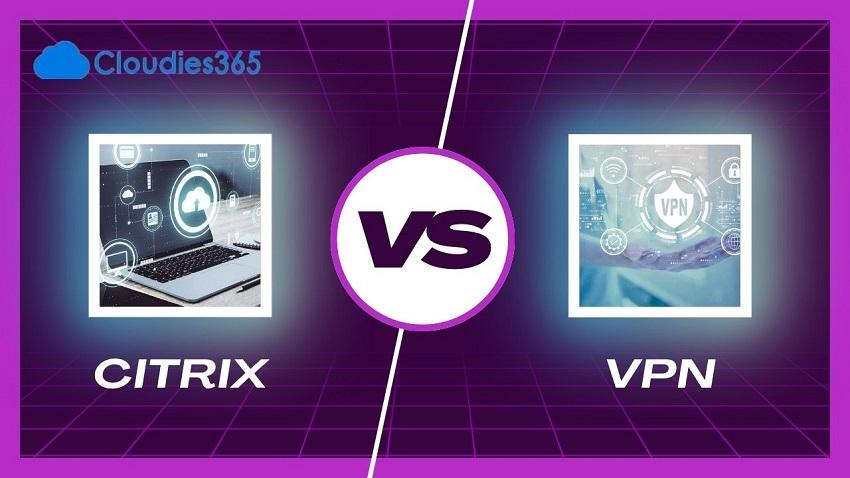Citrix and VPN serve different purposes, and the choice between them depends on your specific remote work requirements and the nature of your organization's infrastructure.
Let's explore the key differences and considerations for citric vs vpn:
Virtual Private Network (VPN):
- Purpose: VPNs create a secure and encrypted connection between a user and a private network (typically the corporate network). It allows remote users to access the organization's resources as if they were directly connected to the internal network.
- Access: VPNs provide a secure tunnel for all network traffic, allowing remote users to access files, applications, and other resources on the company's network.
- Performance: VPNs might experience latency and performance issues, especially when dealing with bandwidth-intensive tasks, as all traffic is routed through the VPN connection.
Citrix:
- Purpose: Citrix is a virtualization solution that allows remote users to access specific applications or desktop environments hosted on servers. It provides a virtualized desktop experience without the need for all data to be transferred to the user's device.
- Access: Citrix delivers applications or desktops to remote users, optimizing the performance by transmitting only the necessary display and input data, rather than all network traffic.
- Performance: Citrix can offer better performance for remote access to applications and desktops compared to a traditional VPN, especially for graphics-intensive or resource-demanding applications.
Considerations:
- Security:
VPNs and Citrix can both provide secure connections, but the level of security might vary based on implementation. Ensure proper encryption and authentication measures are in place.
- User Experience:
Citrix often provides a more seamless and responsive user experience, especially for remote access to applications. VPNs might be suitable for simple file access but may not deliver the same level of performance for applications.
- Resource Requirements:
Citrix may require more infrastructure investment and management compared to a VPN. Consider the resources available and the scalability requirements of your organization.
- Application Compatibility:
Some applications may work better with one solution over the other. Consider the specific needs of your organization and the applications your remote users require.
- Cost:
The cost of implementing and maintaining Citrix can be higher than a VPN solution. Evaluate your budget constraints and weigh the costs against the benefits.
In summary, there is no one-size-fits-all answer. If your primary need is secure remote access to the entire network, a VPN might be sufficient. If you are focused on delivering optimized remote access to specific applications or desktops, Citrix could be a better fit. Some organizations even use a combination of both to meet different use cases.
